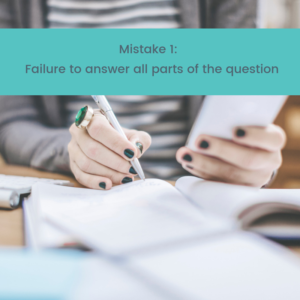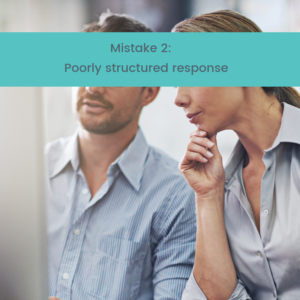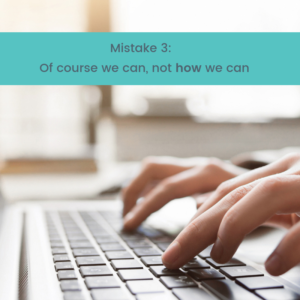By Kate Burrows, Managing Director, Tender Training College
I was recently engaged by a small business to audit its past tender responses, and advise on how it could improve its written submissions and win rates. The key improvements I identified for this particular SME’s business are actually relevant to all companies, bid teams and professionals who write tender responses. They represent tips to counteract some of the fundamental mistakes professionals make when answering tender questions.
I see these tender writing mistakes time and time again, and they put companies at the lower end of the scoring scale when it comes to the evaluation and winning the bid.
Mistake 1: Failure to answer all parts of the question
 Don’t give away marks by only partly answering the question. Let’s take an example tender question to demonstrate how to answer it in its entirety:
Don’t give away marks by only partly answering the question. Let’s take an example tender question to demonstrate how to answer it in its entirety:
The Respondent is to provide its approach on how it will measure, monitor and report on its performance over the term of the Contract.
If your response only includes information on how your company will measure performance, then you will not score full marks.
You need to address all parts of the question to be eligible to score maximum points. That is, how you will separately measure, monitor and report on performance.
TIP: Before you start writing your response, identify the components of your question that need to be addressed. Failure to address each component means you are giving away valuable points.
Mistake 2: Poorly structured response

The basis of a strong tender response is in the structure. Too often, I see tender responses that are poorly structured.
By that, I mean the content is not presented in a format that clearly references and answers the question. This makes the evaluator’s job difficult to find the information it is looking for and to assess the response.
Let’s take our example tender question again: The Respondent is to provide its approach on how it will measure, monitor and report on its performance over the term of the Contract.
I would expect to see a structure with headings that clearly reference the elements of the question, such as:
1. Approach to measuring performance
2. Approach to monitoring performance
3. Approach to reporting performance.
TIP: Before you start writing, set up a structure for your response so you have a framework for answering the question in a clear and logical way that references the question.
The best way to do this is insert headings and sub-headings in your document that reflect each part of the question. Also, make sure the headings are in the same order as presented in the question, and contain the same or similar wording.
This enables the evaluator to easily identify, review and assess the information they are looking for.
Mistake 3: Of course we can, not how we can

In one of the SME’s tender I reviewed, it appeared as though content had been copied from a capability brochure or a website.
The response talked generically about how the company performed its business and provided its service offering. There was little or no reference to the contract it was aiming to win.
Evaluators do want assurance that your company has the capability to deliver the goods or services under offer. However, they are scoring your response on how your organisation will apply its skills and experience to meet the specific requirements of that particular contract.
Each client, each contract and each tender has unique requirements. Failure to identify these requirements and show how you will meet (and hopefully exceed) them, may result in a non-compliant bid and certainly a lower score.
TIP: Read the tender document carefully to identify the requirements that are relevant to your question. And then make sure your response addresses how your company will deliver upon the tender requirements over the term of the contract.
The Tender Training College offers Tender Writing Courses for professionals in small to medium sized businesses as well as those in larger corporations.
For professionals in SMBs: Tender Writing Certificate
For professionals in large companies: Develop & Write Winning Tender Content Certificate
Kate Burrows is the Founder of the Tender Training College. Kate was inspired to start the Tender Training College to help businesses and professionals secure their futures by providing quality tender training.
To see if and how the Tender Training College can help your company improve its tender writing capabilities, contact kate@tendertrainingcollege.com.au


